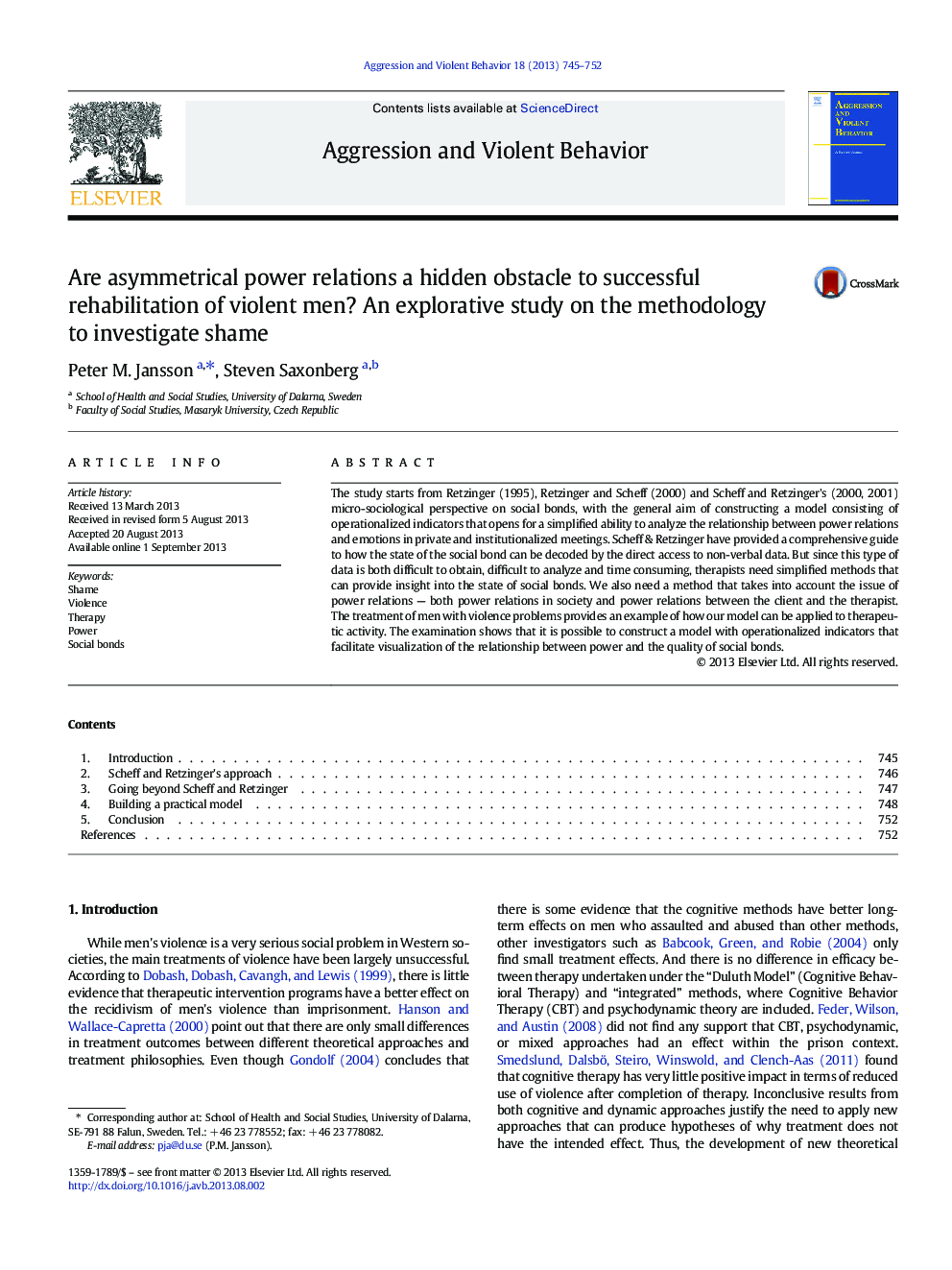| Article ID | Journal | Published Year | Pages | File Type |
|---|---|---|---|---|
| 94698 | Aggression and Violent Behavior | 2013 | 8 Pages |
•The significance of power and emotions in therapy is underrated.•Stable bonds between therapists and clients are crucial for efficient therapy.•A new model, analyzing social bonds between therapists and clients, is proposed.
The study starts from Retzinger (1995), Retzinger and Scheff (2000) and Scheff and Retzinger's (2000, 2001) micro-sociological perspective on social bonds, with the general aim of constructing a model consisting of operationalized indicators that opens for a simplified ability to analyze the relationship between power relations and emotions in private and institutionalized meetings. Scheff & Retzinger have provided a comprehensive guide to how the state of the social bond can be decoded by the direct access to non-verbal data. But since this type of data is both difficult to obtain, difficult to analyze and time consuming, therapists need simplified methods that can provide insight into the state of social bonds. We also need a method that takes into account the issue of power relations — both power relations in society and power relations between the client and the therapist. The treatment of men with violence problems provides an example of how our model can be applied to therapeutic activity. The examination shows that it is possible to construct a model with operationalized indicators that facilitate visualization of the relationship between power and the quality of social bonds.
